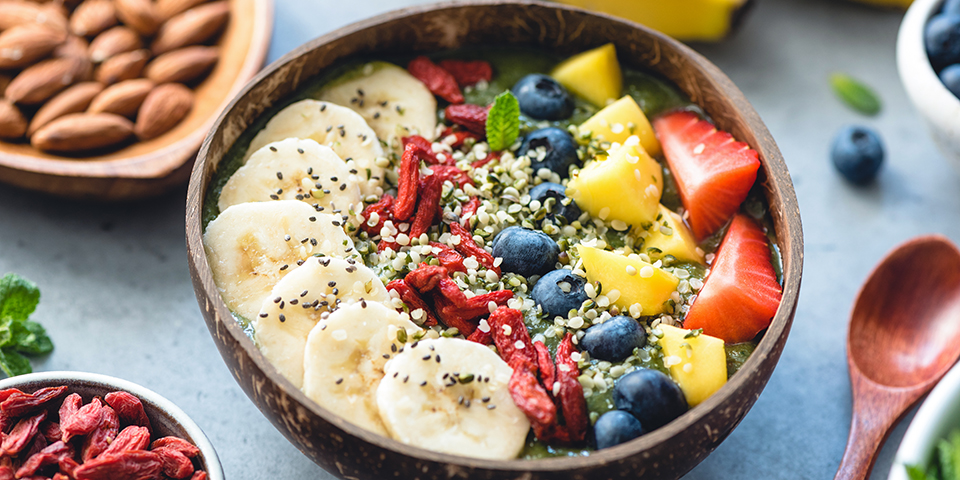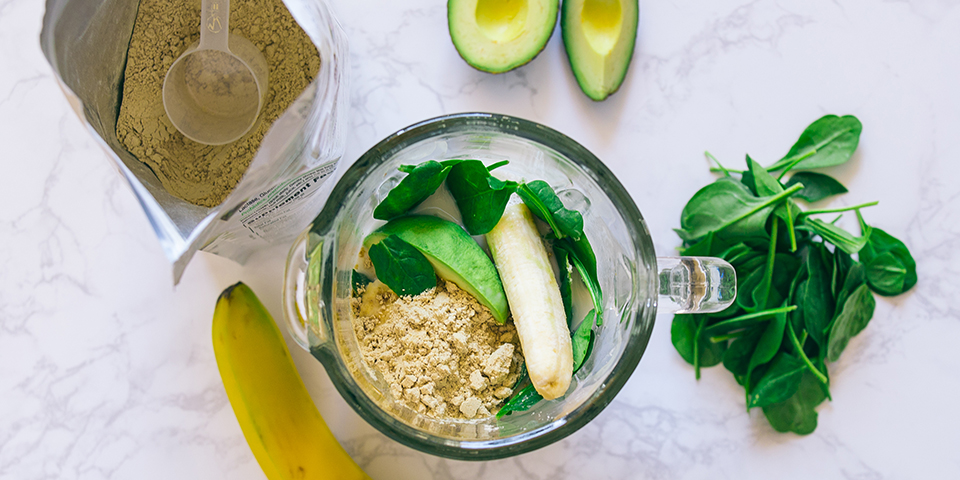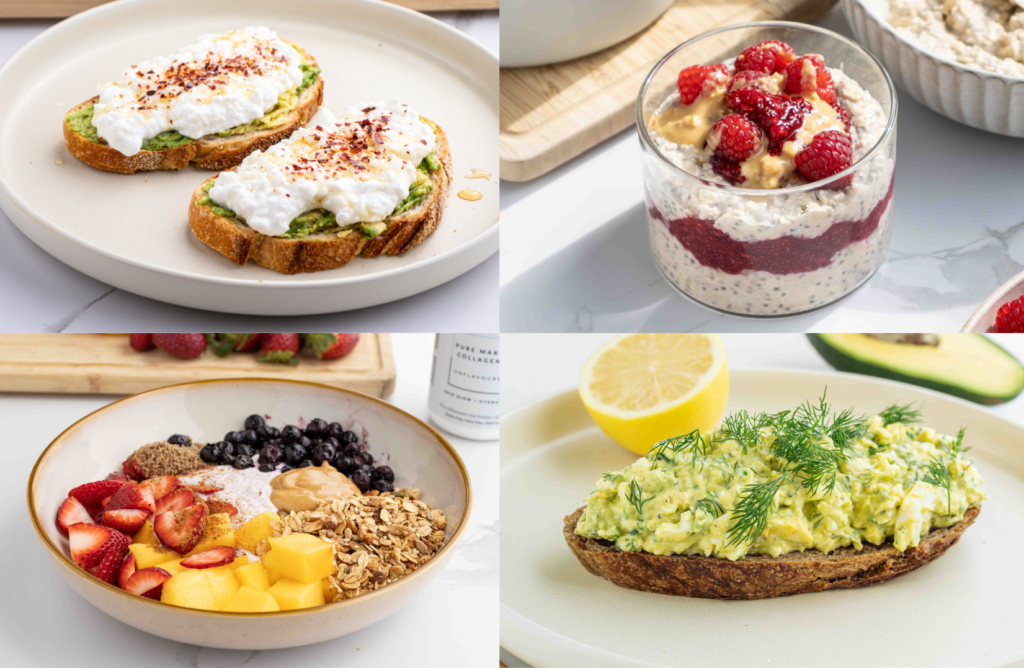Are you trying to learn about healthy seeds? Then, you’ve come to the right place.
Seeds are the start of a healthy plant, so it’s no wonder that they’re packed with fiber, healthy fats, protein, and various vitamins and minerals.
Of course, not all seeds are edible. Some are too hard for humans to digest, and some are poisonous.
However, the ones you can eat should make up for it. Below are six healthy seeds you should be eating right now, plus some recipe ideas.
1. Chia Seeds
Chia seeds contain omega-3 fats and fiber, plus they contain minerals like iron, calcium, magnesium, and zinc.
While you can simply sprinkle chia seeds over oatmeal or salad and call it a day, these tiny, healthy seeds are much more versatile.
According to Quyen Vu, culinary nutrition specialist for Beachbody, “They are my favorite because you can add them to all sorts of baked goods to healthify a recipe. In vegan baking, 1 tablespoon of chia seeds plus 3 tablespoons of warm water can replace an egg. In pie crusts, muffins, and other batter, chia seeds add stability, structure, and texture.”
To try this at home, make Raspberry Muffins with Chia Seed to get a surprising crunch from moist muffins.
Then, there’s chia seed pudding, a dessert-like breakfast trend that’s all over social media.
Just add chia seeds to yogurt and water or a milk of your choice, let it sit overnight, and voilá, wake up to silky, sweet chia seed pudding.
From banana cream pie to coconut mango, these 7 Easy Chia Pudding Recipes show that an easy breakfast doesn’t have to be boring.
2. Pumpkin Seeds
In addition to healthy fats and fiber, pumpkin seeds contain zinc, an antioxidant that protects against inflammation.
Enjoy pumpkin seeds as a light snack, or use them as crouton replacement in salads like we did in this Roasted Pumpkin Salad with Lentils.
“For freshness, it’s best to buy pumpkin seeds unshelled and raw at the store. You can roast them in the oven or pan and add your own spices and salt to the mix. For sweetness, try adding cinnamon and a little honey,” Vu recommends.
3. Hemp Seeds
Hemp seeds contain a good mix of omega-6 and omega-3 fats along with a host of important vitamins and minerals.
You can eat them raw, roasted, or cooked, and fear not — there’s no THC in properly cleaned hemp seeds despite being in the same family as cannabis.
Vu says, “Hemp seeds are great in smoothies for a nutty but not overwhelming taste. Add them to overnight oats for a fiber and healthy fat boost.”
4. Flax Seeds
Flax seeds are a source of alpha-linolenic acid (ALA), a plant-based type of omega-3 fats.
Unfortunately, their tough, fibrous outer shells seal in the omega-3 fats, and we can’t easily digest them.
If you want to unlock all that nutritious fat, blend flax seeds into smoothies using a high-power blender.
“Adding flax seeds into smoothies gives them a thicker mouthfeel, making the smoothies feel more satisfying to drink,” says Vu.
She recommends buying whole flax seeds because the pre-ground ones oxidize too quickly.
5. Sunflower Seeds
Sunflower seeds are one of the best sources of vitamin E (a 2 Tbsp. serving contains 3.1 mg vitamin E, which is considered an excellent source).
These healthy seeds can be enjoyed as a standalone crunchy snack or as a topping for salads.
You can use sunflower seeds, along with pumpkin, flax, and chia, to make this hearty Super Seeded Paleo-Friendly Bread.
6. Sesame Seeds
Sesame seeds have a nutty, slightly sweet flavor that’s distinct in some Asian dishes. You can mix sesame seeds with other seeds to make a tasty Spiced Seeds mix, great for an on-the-go snack.
Or try making Super Seed Energy Bars, perfect for a post-hike treat.
Nutrition for 6 Healthy Seeds
Is it OK to eat seeds every day? Yes. Even if you’re trying to lose weight, seeds are a nutrient-dense food.
You gain a lot of valuable vitamins and minerals for the calories that you “spend.”
Which seed is healthiest or best for weight loss?
We think you can eat any of these healthy seeds (in reasonable portions) as long as you like them.
As the chart below shows, the seeds are pretty similar, except for chia and flax, which are highest in fiber.
Or hemp and flax, which are highest in omega-3 fats.
You can also get fiber, and omega-3 fats from other foods, so don’t obsess over the differences too much.
| Chia
(28 g) |
Pumpkin
(28 g) |
Hemp
(28 g) |
Flax
(28 g) |
Sunflower
(28 g) |
Sesame
(28 g) |
|
| Calories | 138 | 163 | 166 | 150 | 175 | 160 |
| Fat | 8.7 g | 14 g | 14.6 g | 11.8 g | 16.1 g | 13.6 g |
| Protein | 4.7 g | 8.5 g | 9.5 g | 5.1 g | 4.9 g | 4.8 g |
| Fiber | 9.8 g | 1.8 g | 1.2 g | 7.6 g | 3.3 g | 4 g |
| Omega-3 | 5 g | 0 g | 8.3 g | 6.4 g | 0 g | 0.1 g |
| Omega-6 | 1.7 g | 5.6 g | 3 g | 1.7 g | 10.6 g | 5.9 g |
Looking for more expert nutrition information? Head over to BODNutrition.com and learn how to eat healthy for the long term with the help of our two nutrition programs, 2B Mindset and Portion Fix.






